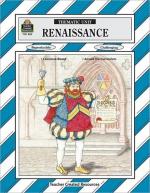|
This section contains 335 words (approx. 2 pages at 300 words per page) |

|
Giovanni Pico della Mirandola is best known for his De hominis dignitate oratio (Oration on the Dignity of Man, 1486). This short work is an excellent summary of neo-Platonic thought during the mid-Renaissance. Mirandola believed that humans have the capacity to determine their own fate. God created everything and gave all a determined place in the cosmos, and then he created humans and gave them the freewill to be godlike or to behave Eke beasts. The notion that humans are capable of perfecting their existence on earth, evolved into a moral obligation to improve oneself and one's society.
At the time of man's birth the Father plants every kind of seed and the germs of every kind of existence; and the ones which each man cultivates are the ones which will grow, and they will bear their fruit in him. If they are vegetative, he...
|
This section contains 335 words (approx. 2 pages at 300 words per page) |

|




